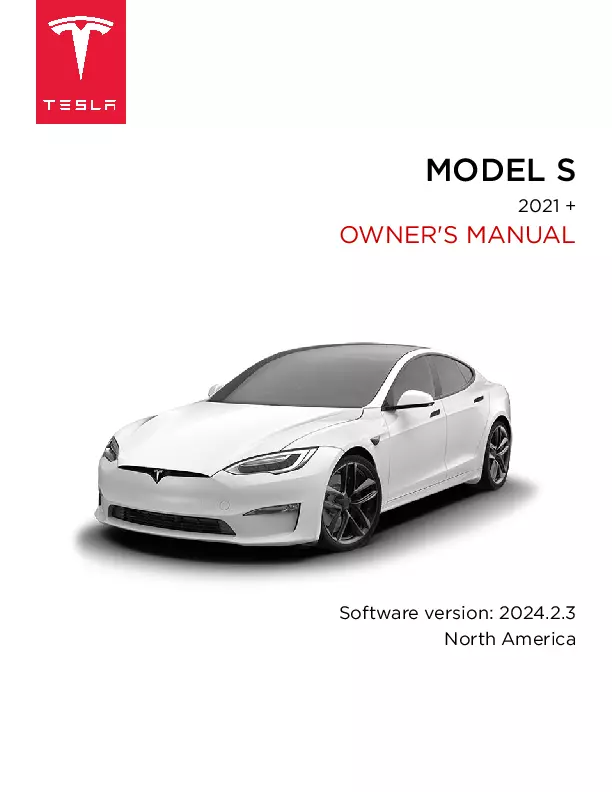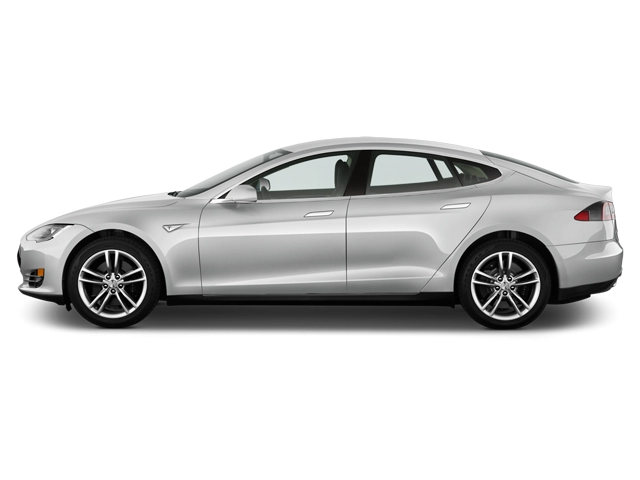2024 Tesla Model S Owner's Manual

Table of Contents
2024 Tesla Model S Overview
Introduction
The 2024 Tesla Model S continues to redefine the luxury electric sedan segment with cutting-edge technology, impressive performance, and uncompromising sustainability. With sleek lines and a minimalist design, it captures attention while delivering an exceptionally refined driving experience. As one of Tesla's flagship models, it embodies the brand's commitment to quality, innovation, and autopilot capabilities.
Powertrains
The 2024 Model S offers two phenomenal powertrain options—the Long Range and the Plaid. The Long Range variant is equipped with dual electric motors, providing an exhilarating 0-60 mph sprint in just 3.1 seconds, while achieving an impressive range of up to 405 miles on a full charge. For those who crave performance, the Plaid version is powered by three electric motors that unleash a mind-boggling 1,020 horsepower, allowing it to sprint from 0-60 mph in a breathtaking 1.99 seconds, making it one of the quickest production cars globally.
Trims
The 2024 Model S is offered in two distinct trims: Long Range and Plaid. The Long Range model focuses on maximizing efficiency and distance, making it ideal for long road trips, while the Plaid model caters to enthusiasts seeking unparalleled acceleration, advanced handling, and ultimate performance.
Features
This luxurious sedan includes a state-of-the-art 17-inch touchscreen display, premium audio system, advanced climate control, and spacious interiors with optional vegan leather. The safety features include Tesla's Autopilot system, adaptive cruise control, and a robust suite of driver-assistance technologies. Optional upgrades include Full Self-Driving capabilities that promise an autonomous driving experience.
Owner's Manual
The comprehensive owner's manual for the 2024 Tesla Model S offers detailed guidance on vehicle operation, maintenance protocols, and safety features, ensuring owners make the most of their driving experience. Additionally, it provides valuable insights into maximizing battery efficiency and utilizing the full suite of Tesla’s advanced technology.
User manual download
The Tesla Model S owner manual for the 2024 model year is to be found in PDF downloadable format on this page. The owner manual for the model year 2024 is free and in English, but the repair manuals are usually not easy to get and may cost more.
Manual Questions
Fill the form below and someone will help you!

